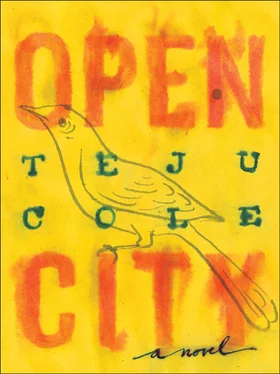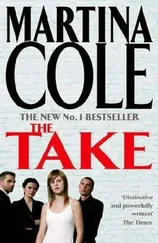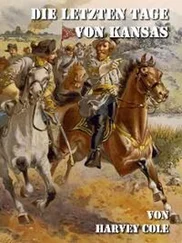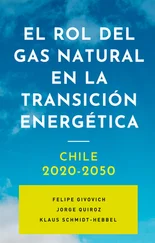I used to be crazy about skiing, and my husband, too, all my children — and we went to Mont Blanc with Grégoire, Jean, their sisters, and we skiied at Chamonix, at Megève. Not Negev, like in Israel, but Megève, close to Mont Blanc in the Swiss Alps. And the Empains had this large chalet there, and all sorts of people showed up, you know, Jean-Claude Aaron, Edmond de Rothschild of the French Rothschilds. And this always amuses me to think of it, but once the queen of Sweden came, and the poor thing, she came with her husband and, you know, I don’t think she had any idea the man was a complete faggot. It was obvious to everyone, but she was oblivious, and they just carried on. Anyway, we went, but it wasn’t because these people were there, it was just good skiing. And I needed to get away from America from time to time, this terrible, hypocritical country, this sanctimonious country. I really can’t stand it sometimes. Do you know what I mean?
But let me tell you about Grégoire’s brother, Jean. He is not as quiet as Grégoire, quite the opposite: he likes to do deals, to jet-set. He’s the one who inherited the title. He’s Baron Empain now, and sports cars, royal families, billionaire friends, that’s his kind of thing. But poor fellow, you know, he was in all the papers in the late seventies. I think it was in 1978 that he was kidnapped, you see, and held for two months. Grégoire, the whole family, they were of course frantic. The kidnappers were French, and demanded something like eight or nine million dollars, a ridiculous amount of money, but not impossible for the Empains. The family was willing to pay. But there had been a lot of kidnappings at the time, all through the seventies, and the French government had a strict policy of no negotiations, no payments. So these kidnappers, I think one of them was called Duchâteau — it is funny that I remember that, but you have to understand, we were following this story so intensely day after day in the newspapers — what Duchâteau and his mates said was: Money brings liberty. I mean, it’s ridiculous, they sound like philosophers, but they really meant it, and when the money was not forthcoming, they sliced off Jean’s little finger and put it in an envelope and mailed it to his wife. They cut it off with a kitchen knife, without anesthetic, and threatened to amputate additional fingers for each day of delay with the payment. But the negotiators refused, and somehow, the kidnappers didn’t follow through on their threat. Eventually, the police were able to ambush them, and they killed one of them, and captured the other two, and Jean was released.
I tell you, that was two months of hell for the family. And Duchâteau, the kidnapper, had written somewhere: These are tiny little slips of paper, but they mean everything, money brings liberty. If you see Jean now, there’s a little knob where that finger used to be. But the worst, if you ask him, was not that amputation, it was the cold. I think he was terribly cold for the two months; they made him sleep in a tent in an unheated room. And light deprivation, so he wouldn’t recognize his captors. Cold and dark. For these tiny little slips of paper, right?
It was morning. We were flying with a bank of clouds above us and a bank of clouds below, and Europe was close. I asked Dr. Maillotte to tell me more about her children. They are all doctors, she said, all three of them, like my husband and me. I think it’s what they wanted, but who knows? My eldest, well, he was thirty-six last year when he died. He had just finished his residency in radiology. Cancer of the liver, and a quick decline. It’s an impossible thing to go through, watching a son die. He was married, and had a three-year-old daughter. It was impossible; it still is. The other two: one is in California, one is in New York. They are the younger ones. And my husband is with me in Philadelphia, well, we’re just outside Philadelphia, and he’s a cardiologist, and he just retired, too.
A silence fell on us. And you, she said, tell me, why Brussels? It’s a strange place for a vacation in winter! I smiled. Cozumel was the other possibility, I said, but I don’t know how to dive. Well, she said, here’s the number at Grégoire’s. Friendly people, you know, they don’t put on airs. I’ll be there for six, maybe eight, weeks. You should come around and have dinner with us. I thanked her for the invitation and told her I would consider it. And, as I looked at the number she had written down for me, I thought about the Paris Métro, that expression of optimism and progress, and about the ancient city in Egypt that had also been known as Heliopolis, before Baron Empain built his version, and of underground travel, we millions moving around underneath cities, inhabitants of an age in which, for the first time, traveling great distances beneath the earth had become normal for humans. I thought, too, about the numberless dead, in forgotten cities, necropoli, catacombs. The pilot announced the final approach for landing, in English, French, and Flemish, and as we broke through the lower bank of clouds, I saw the city spread across the low landscape.
Mayken, the woman who owned the Brussels apartment, had offered to pick me up from the airport for an additional fee of fifteen euros. The other options, she had told me on the phone, were to take a taxi for thirty-five euros, or to take public transportation and risk being robbed. And so, when I arrived on the overnight flight, she was waiting in the arrivals lounge with a sign that had my name on it. Her bleached hair sat on her head like yellow cotton candy, and looked likely to lift and sail away if caught in the wind. I bid goodbye to Dr. Maillotte, and walked over, waving until Mayken spotted me. She was in her fifties, friendly, but with a sharp business manner that, as we later went over the short-term lease papers — pages and pages of picayune legal detail — became, with her bouffant hair, the only visible part of her personality.
The original idea of Brussels, she said, as we drove out of the airport, was that it should be equally Flemish and Walloon. Of course, it’s not that way anymore, she went on, now it is ninety-five percent Walloon and other French speakers, one percent Flemish, and four percent Arab and African. She laughed, but quickly added: These are real numbers. And the French are lazy, she said, they hate working and are envious of the Flemish. I’ll tell you this in case you don’t hear it from anyone else.
I looked outside the window, and in my mind’s eye, I began to rove into the landscape, recalling my overnight conversation with Dr. Maillotte. I saw her at fifteen, in September 1944, sitting on a rampart in the Brussels sun, delirious with happiness at the invaders’ retreat. I saw Junichiro Saito on the same day, aged thirty-one or thirty-two, unhappy, in internment, in an arid room in a fenced compound in Idaho, far away from his books. Out there on that day, also, were all four of my own grandparents: the Nigerians, the Germans. Three were by now gone, for sure. But what of the fourth, my oma? I saw them all, even the ones I had never seen in real life, saw all of them in the middle of that day in September sixty-two years ago, with their eyes open as if shut, mercifully seeing nothing of the brutal half century ahead and, better yet, hardly anything at all of all that was happening in their world, the corpse-filled cities, camps, beaches, and fields, the unspeakable worldwide disorder of that very moment.
Mayken’s English was slightly inflected with wavering Dutch vowels. I looked out on both sides of the speeding car, and the Brussels of my experience came back to me. It was my third visit to the city, but the previous ones had been brief, the first having been more than twenty years before, during a two-day layover on the way to the United States from Nigeria when I was seven. At the time, my mother had said nothing about her mother, though my oma had moved there by then. The details of that journey were buried in my memory until I saw the Novotel Hotel near the airport, where the airline had put us up. How ideal it had all seemed back then: the black Mercedes-Benzes that were used as taxicabs at the airport, the strange food at the hotel buffet. It was a glimpse of impressive sophistication and wealth, that first experience of Europe. Outside the hotel, I had noticed the order and grayness, the modesty and regularity of the houses, and the cool formality of the people, against which American life, my first real contact with which came a few weeks later, had seemed lurid.
Читать дальше












